A Tribute to Five of the Greatest Black and Female Artists in the Music Industry
Ella, Tracy, Missy, Lizzo, and Yoncé
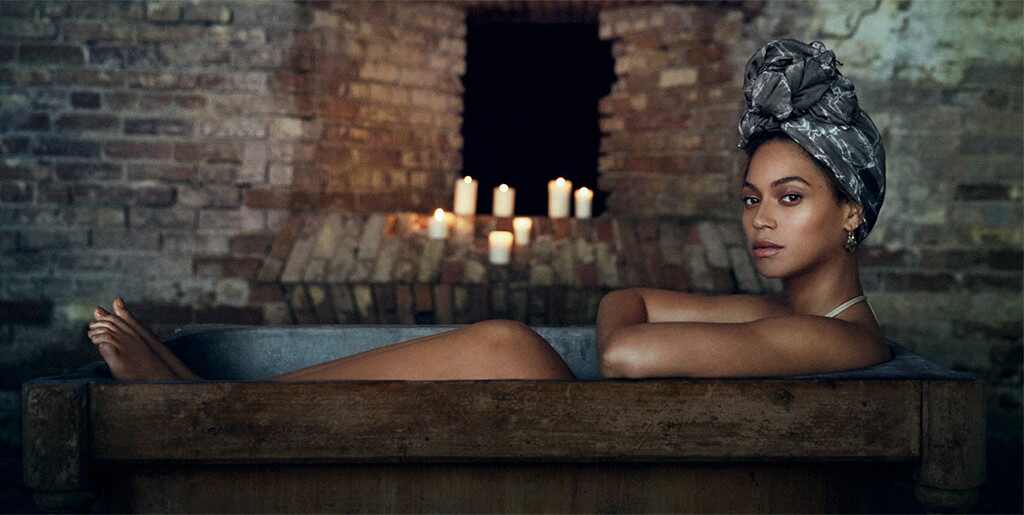
“Everybody wants to know my style and where it came from. It’s no big secret. It’s how I feel.” -Ella Fitzgerald
“Have faith in humankind / A respect for what is earthly.” -Tracy Chapman
“Ain’t no shame ladies, do your thing / Just make sure you’re ahead of the game.” -Missy Elliott
"I got boy problems, that's the human in me / bling bling then I solve em, that's the goddess in me." -Lizzo
“I was served lemons but I made lemonade.” -Beyoncé
These are the words of Ella, Tracy, Missy, Lizzo, and Beyoncé: five of the greatest black and female artists in the music industry. They have wildly different styles, voices, and backgrounds. But I think they’d agree on at least these few things: you have to be unapologetically yourself, be ahead of the game, do what is human, be a goddess where it counts, and always, always, always - make lemons into lemonade.
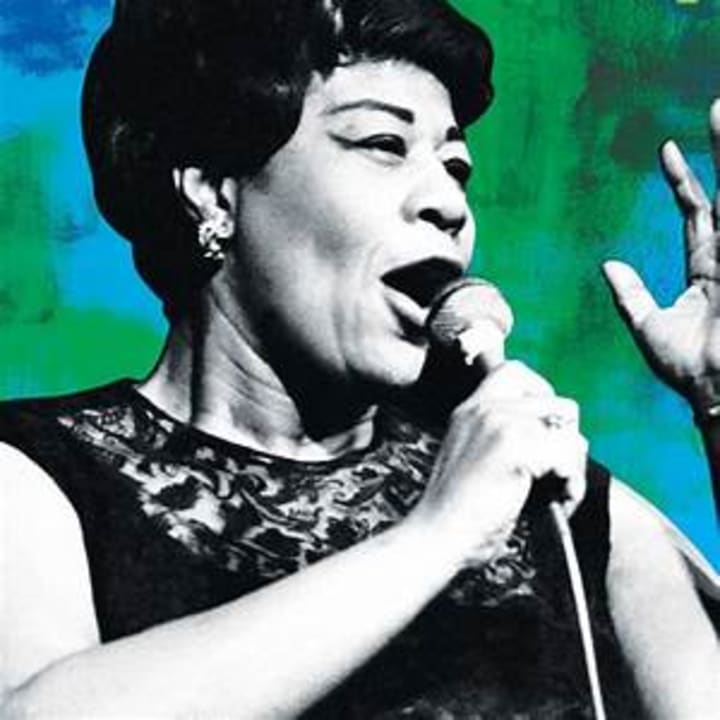
Ella Fitzgerald
No account of influential Black Women in Music would be complete without a tribute to Ella Fitzgerald. The way that Toni Morrison transformed American literature, and Rita Dove transformed American poetry, so Ella Fitzgerald transformed American Jazz music. She was the first African American woman to receive a Grammy, and went on to earn a total of 13 Grammy Awards.
Every black woman on this list has faced socio-political oppression and used it to fuel their rise to greatness. Most of them have also faced personal and domestic violence. Just as systemic injustice can make or break a person, so too personal trauma can either silence or give voice to unparalleled creativity. For Fitzgerald, it was the latter.
Fitzgerald experienced horrific childhood abuse and loss but tenacity kept bringing her back to music until the music world picked her up and hailed her as “the Queen of Jazz.” In the 1930’s she was a black, teenage, orphan girl. Habituated abuse from her stepfather forced her to run away from home, the streets kept her away from home, police eventually kept her off the streets, and eventually a depraved orphanage kept her hostage. Her music contains in it extreme highs and lows, mirroring the tumult of her upbringing. But ultimately, her music transcends all of her disparate experiences and creates something extraordinarily human and simply divine.
Ella Fitzgerald’s voice is a tribute to fierce and fearless femininity. Marge Piercy, in a poem celebrating womanhood, describes a woman uncorking herself to access a blazing and burning source:
“In her bottled up is a woman peppery as curry, a yam of a woman of butter and brass, compounded of acid and sweet like a pineapple, like a handgrenade set to explode, like goldenrod ready to bloom.”
Fitzgerald’s music accessed this quality of womanhood and unleashed it like a crescendo on the segregated ears of 20th century America.
Powerful art doesn’t idolize tragedy, it transforms tragedy. Ella’s bellowing voice, so often characterized as “liquid velvet,” moved Jazz to soaring new heights and rich new depths, and all the while she kept something classic and ageless. Her music was at the heart of African American culture and the soul of femininity. No doubt her music was informed by her struggles and made great by her struggles, but in the end her music transformed and transcended adversity and became pure poetry freed from the bounds that inspired it.
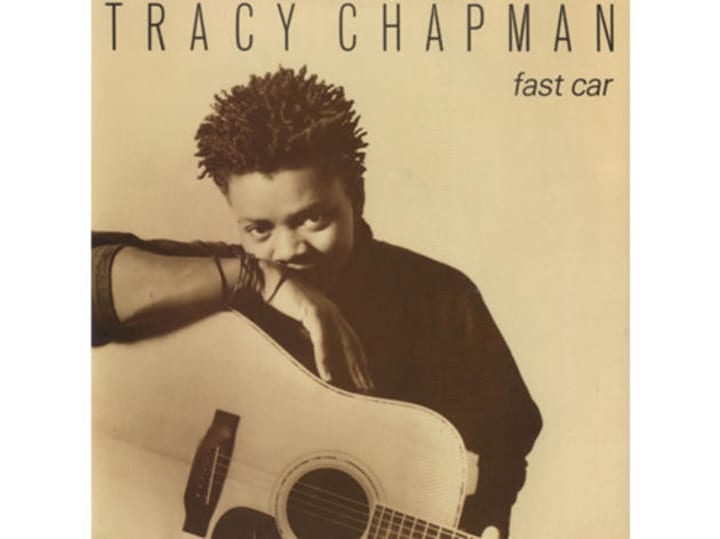
Tracy Chapman
I first heard Tracy Chapman playing in a small bookshop in Santa Fe. The song was mesmerizing. The song was “Fast Car.” As soon as I heard the song I knew I’d be listening to Tracy Chapman for the rest of my life. Her words: “you got a fast car / I got us a plan to get us out of here / been workin’ at the convenient store / managed to save just a little bit of money.” Her words are charged, but not rhapsodic. They tell a story first and foremost.
Making her debut in the late 80’s, Chapman offered a distinctly different voice than many of her contemporaries. Chapman used music as a vehicle to carry forth her personal stories and to drive forward social awareness. Her music is by no means light or humorous. She gives it the gravity it deserves and needs. Still, though, she does so with striking ease and colloquial grace.
The refrain of “Fast Car” reads: “you got a fast car / is it fast enough so we can fly away?” Her question is an articulation of the problem: when the odds are stacked against you, you have to not only be able to drive fast - you have to be able to drive fast enough to fly. When the injustice is systemic, ordinary means are not enough to break free. You need to be extraordinary.
And Chapman was. Her words are as strong and as powerful as they are because the trauma and injustice she sings about have roots embedded deep in her early childhood. She sings: “see my old man’s got a problem / he lives with the bottle that’s the way it is / says body’s too old for working / body’s too young for looking like his / mama went off and left him / she wanted more from life than he could give / I said somebody’s gotta take care of him / so I quit school and that’s what I did.” Yet her songs cannot be reduced so simply to socio-political implications. Like all great art, love and loss and relationships fill the space between all of her political messages. They open the doorway to her world. They elevate her work to an entire experience, an entire life, as opposed to a simple “message” or “point.”
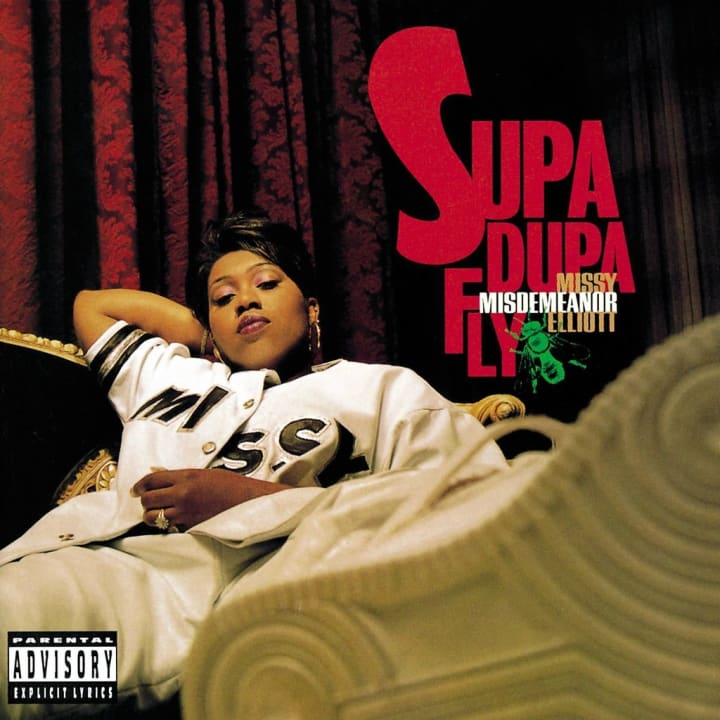
Missy Elliot
Missy was an icon. And as an icon, Missy (Misdemeanor) Elliot made her own terms. Rather than focusing on fitting her body to conventional standards, she focused on creating a body of work which changed the standards, and essentially - the game. Emerging in the 90’s hip hop scene, she was the first female rapper to earn a spot in the Songwriters Hall of Fame.
For Missy, profanity is a way into profundity. She ruptures decorum and in so doing accesses something truer and more authentic. Her music is fun, it’s catchy, it’s like nothing that came before, and remains unparalleled. In her songs she invents a new standard for beauty. She proves that art has great control over societal attitudes and social norms. While most of her contemporaries were showing skin, Missy rocked a full garbage bag getup in the 1997 music video of the hit song “The Rain.” When she spoke out about the outfit 20 years later, she said “it was a symbol of power.” “I knew I could have on a blow up suit and still have people talking.” She was right. People had been talking about it for 20 years. When she finally came out about it, it was in response to a tweet about the outfit. Her music promoted body positivity and a raging confidence that made no compromise.
Rising to stardom often takes this uncompromising and relentless faith in oneself. Missy Elliott had a tumultuous childhood, witness to her father’s unpredictable bouts of rage towards her mother. She decided she would be a star and lost herself to her music in the confines of her room. When asked in school what she wanted to be when she grew up, her response was: a superstar. The class responded with roarous laughter, but as with all revolutionaries, adversity didn’t extinguish her fire - it fueled her fire. "So when I would get in my room,” she said, “it was like, if y'all don't see it, I'm going to create it myself."
Missy isn’t only a powerhouse in music, she's also been a powerhouse in the industry. As a producer, she's become an incredibly successful business woman in this latter part of her career. In 2019, she released an album called “Iconology.” It included the song “Throw It Back,” where she made it clear that although she hasn’t been on the forefront of the scene in a while, she’s still got it. In the iconoclast song, Missy tells the story of how she raised “all these babies” - various artists who have since paved their own way - and says “call me Katherine Jackson.”
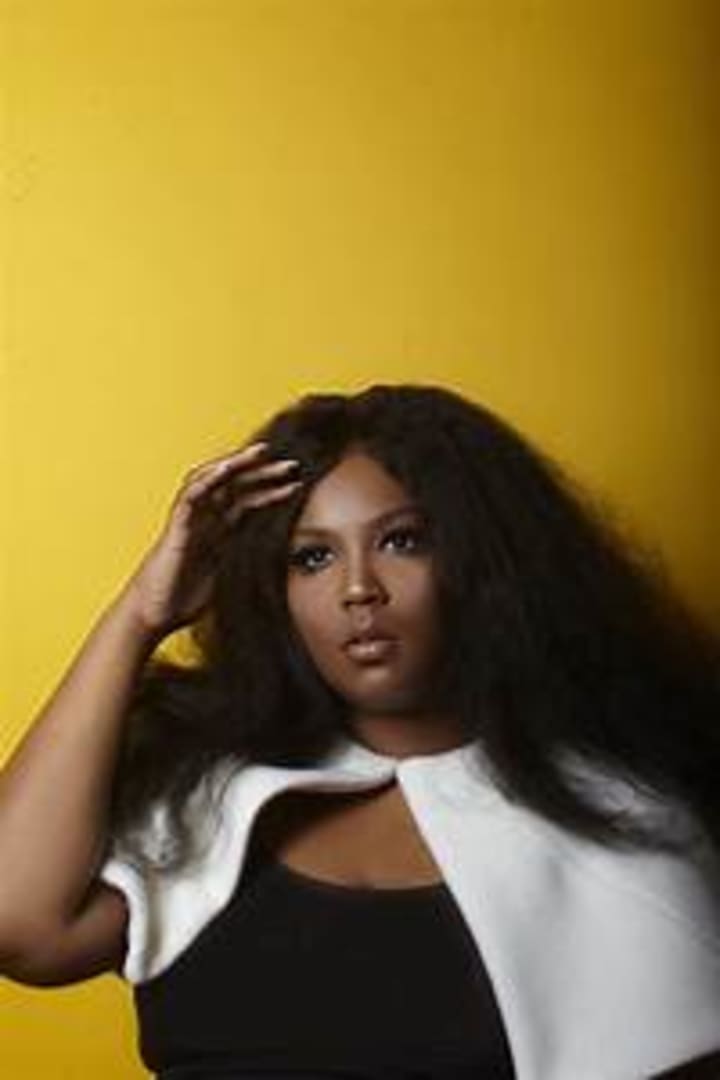
Lizzo
Lizzo is fierce. She was one of those “babies” raised by Missy Elliott. But while she was inspired by Elliott, and even collaborated with the 90’s rapper, she’s most certainly also emerged as her own artist. “Woke up feelin’ like I just might run for President / Even if there ain’t no precedent, switchin’ up the messaging.” She may have learned from Missy Elliott, but what she learned was: I am my own predecessor.
Understanding the key to making great art, Lizzo raps: "I got boy problems, that's the human in me / bling bling then I solve em, that's the goddess in me." You start off with what is most human. Then, you elevate it. Her albums are primarily rap, but interspersed with different styles. “Cuz I love you,” for example, puts her incredible Gospel voice training on display. Her style isn’t lost, though, as she explores various genres. If anything, it puts a finer tip on just what it is that defines Lizzo.
In her 2019 albums, Lizzo brings to the forefront an unapologetic and joyous celebration of black beauty. She shows how the black voice in music can bolster and honor the black body in society. In her song Tempo, slow songs are for skinny women, and curvy women need tempo. She reveals how music and the body are inextricably connected. Just as lyrics can convey meaning, the human voice can carry body and beauty. This body positivity and celebration of blackness is certainly inspired by Missy Eliott - who is featured in the Single “Tempo” - but Lizzo’s music is even more embodied than Elliott’s. Lizzo brings new dimensions to the tempo of black music.

Beyoncé (and Warsan Shire)
What’s a Black Women in Music list without Beyoncé? Hell, what’s a music list without Beyoncé? She’s a revolution unto herself. One of her most influential albums is no doubt her 2016 album Lemonade, which Rolling Stone named “The Best Female Album of the Century.”
A tour de force, Lemonade is wrought not only with powerful lyrics and stunning images, but the accompanying film also serves as a platform for Poet Laureate Warsan Shire to speak important truths about the world at large. Warsan Shire was a refugee born to Somali parents in Kenya. She was the first Young Poet Laureate of London. She has many of her own published poetry collections and her poetry has also been featured on short films by various non-profits.
In 2020, Warsan Shire partnered with global non-profit Girl Rising to tell the story of a girl refugee Nasara. Shire learned Nasara’s story and then transposed it into a piece called Brave Girl Rising: Extreme Girlhood in Five Poems. In the film produced by Girl Rising, Nasara played herself on camera, as Warsan Shire narrated her poem in the background. Warsan Shire’s feature on Beyoncé’s Lemonade is not just novelty. Beyoncé’s collaboration with Warsan Shire is representative of Beyoncé’s work as an artist in general. Beyoncé is a global citizen, a maker of culture, and a catalyst towards change.
Lemonade is as powerful as it is because it’s a journey of self-knowledge, hitting on the notes of marriage, infidelity, heartbreak, spirituality, femininity, heritage, and home. In it, Beyoncé places the interpersonal tumult which inspired Lemonade within a larger context, understanding how our personal lives ebb and flow against a larger backdrop of our collective experience. As a refugee, much of Warsan Shire’s work is about the concept of home. In one of Shire’s Home poem, she writes: “you have to understand, no one places their child in a boat unless the water is safer than the land.” These themes of safety, danger, home, and journey are explored on the individual scale in Beyoncé’s Lemonade, through the relationships we have and how we try to make homes in other people.
Excerpts From Shire's Work in Lemonade -
1. From “Emptiness”
She sleeps all day. Dreams of you in both worlds. Tills the blood, in and out of uterus. Wakes up smelling of zinc, grief sedated by orgasm, orgasm heightened by grief [...] Sometimes when he'd have her nipple in his mouth, she'd whisper, 'Oh, my God.' That, too, is a form of worship. Her hips grind, pestle and mortar, cinnamon and cloves. Whenever he pulls out ... loss.
2. From “Denial”
I tried to change. Closed my mouth more, tried to be softer, prettier, less awake. Fasted for 60 days, wore white, abstained from mirrors, abstained from sex, slowly did not speak another word. In that time, my hair, I grew past my ankles. I slept on a mat on the floor. I swallowed a sword. I levitated. Went to the basement, confessed my sins, and was baptized in a river. I got on my knees and said 'amen' and said 'I mean.'
3. From “Anger”
I don't know when love became elusive. What I know is, no one I know has it. My father's arms around my mother's neck, fruit too ripe to eat. I think of lovers as trees ... growing to and from one another. Searching for the same light. Why can't you see me? Why can't you see me? Why can't you see me? Everyone else can.
4. From “Forgiveness”
Baptize me ... now that reconciliation is possible. If we're gonna heal, let it be glorious. 1,000 girls raise their arms. Do you remember being born? Are you thankful for the hips that cracked?
5. From “Intuition”
I tried to make a home out of you, but doors lead to trap doors, a stairway leads to nothing. Unknown women wander the hallways at night. Where do you go when you go quiet? [...] The past and the future merge to meet us here. What luck. What a f*cking curse.
6. From “Redemption”
You're the magician. Pull me back together again, the way you cut me in half. Make the woman in doubt disappear. Pull the sorrow from between my legs like silk. Knot after knot after knot. The audience applauds ... but we can't hear them.
These poems are powerful. They tell the story of the black, of the female, of the mother, of the refugee. And what's equally as powerful is Beyoncé's endorsement of Shire's poetry, and her partnership with activists and artists.
Making music in a much more progressive climate than many of her predecessors, Beyoncé has understood this as a responsibility - rather than a privilege - to do even more with her resources. Lemonade was cathartic, transformational, and beautiful beyond belief. But above all else, it was defining of Beyoncé's role as an artist - a crossroads for beauty and truth, in personal and global contexts.
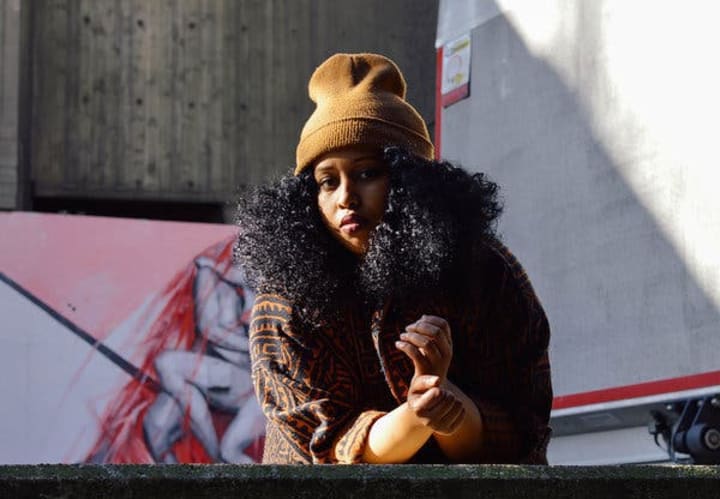
This, of course, is not an exhaustive list of Black, Female artists in the world of music. But what list could be? In the words of Warsan Shire:
"Bless us: born girls, born black, born into war, born to no home. May we find love everywhere we go."
About the Creator
Sophia Paffenroth
An aspiring writer, an avid reader, and a longtime artist. New York and New Mexico are written on my soul.






Comments
There are no comments for this story
Be the first to respond and start the conversation.